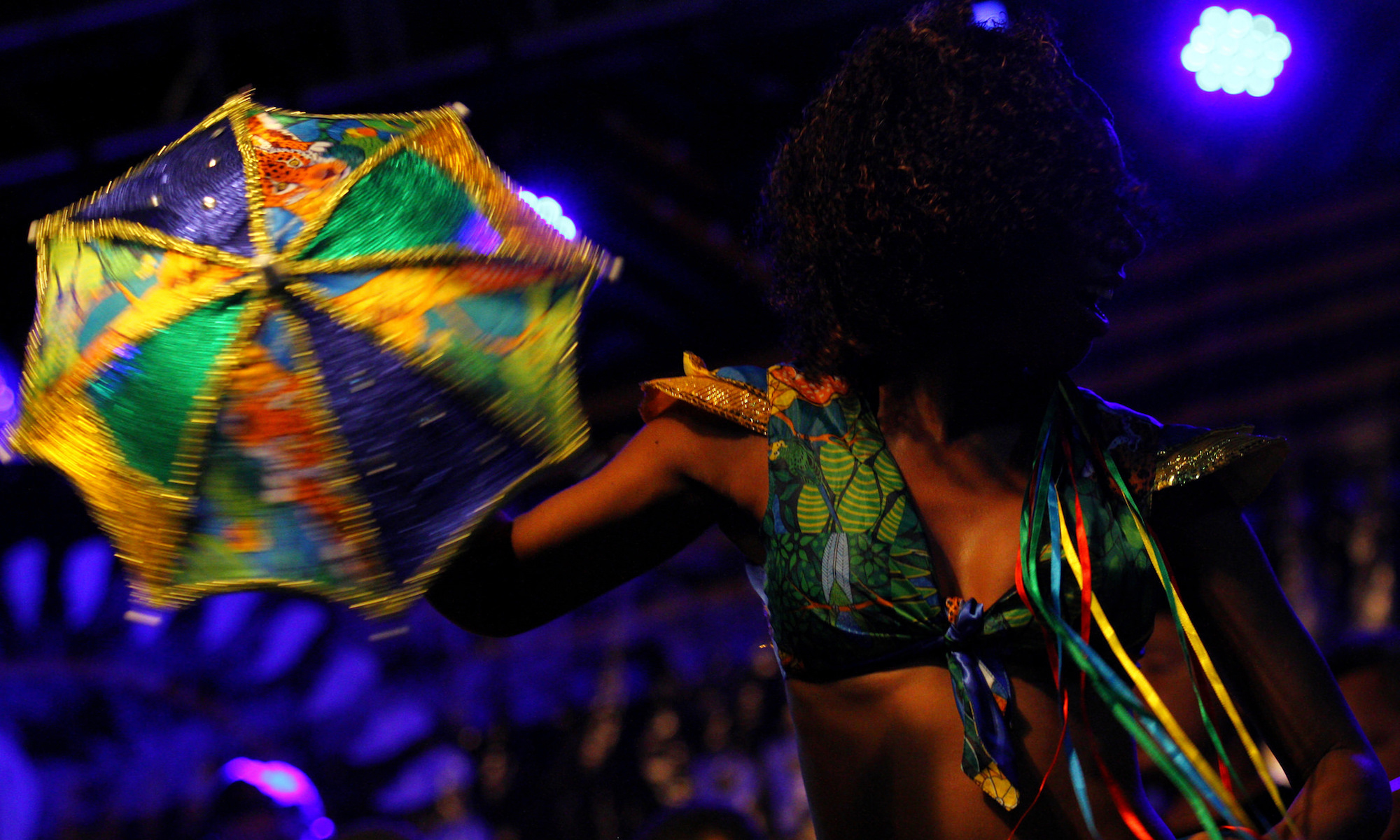I have a little more than a month left in Recife and things are speeding up more and more as I approach the end of this research trip. A lot has been happening since my halfway point reflection so this is my “three-quarters point” reflection.
The month of May has been filled with interviews which have been fun, informative, and overwhelming. I spent the first couple months here just soaking things up and getting a lay of the land (also called “deep hanging out,” to quote anthropologist Clifford Geertz), and then I spent the next couple months in dance classes every day to dig into the “participant observation” phase of my research. Now that I have met some people, and I have a better idea of what is going on here, I have been able to approach some important figures in Recife’s frevo world to ask them some better-informed questions.
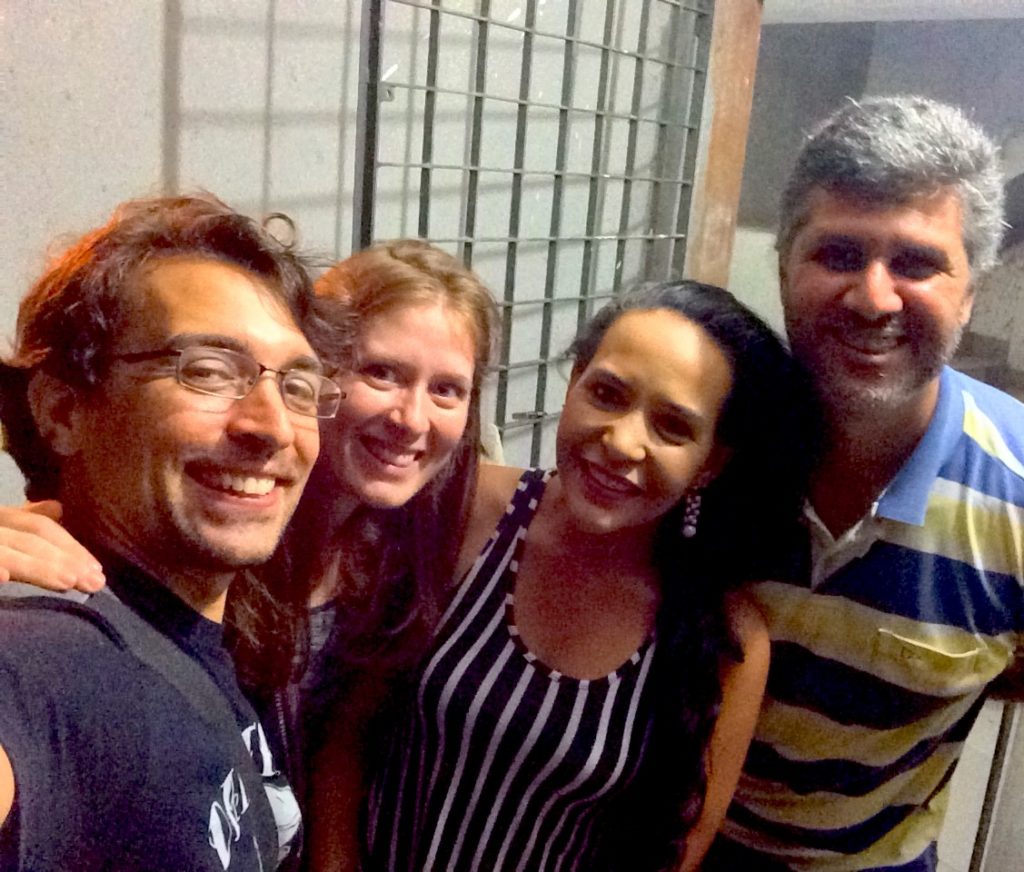
Eduardo Araújo and Lucélia Albuquerque from Guerreiros do Passo offered great insight into their group and their commitment to ensuring the continued legacy of Mestre Nascimento do Passo.
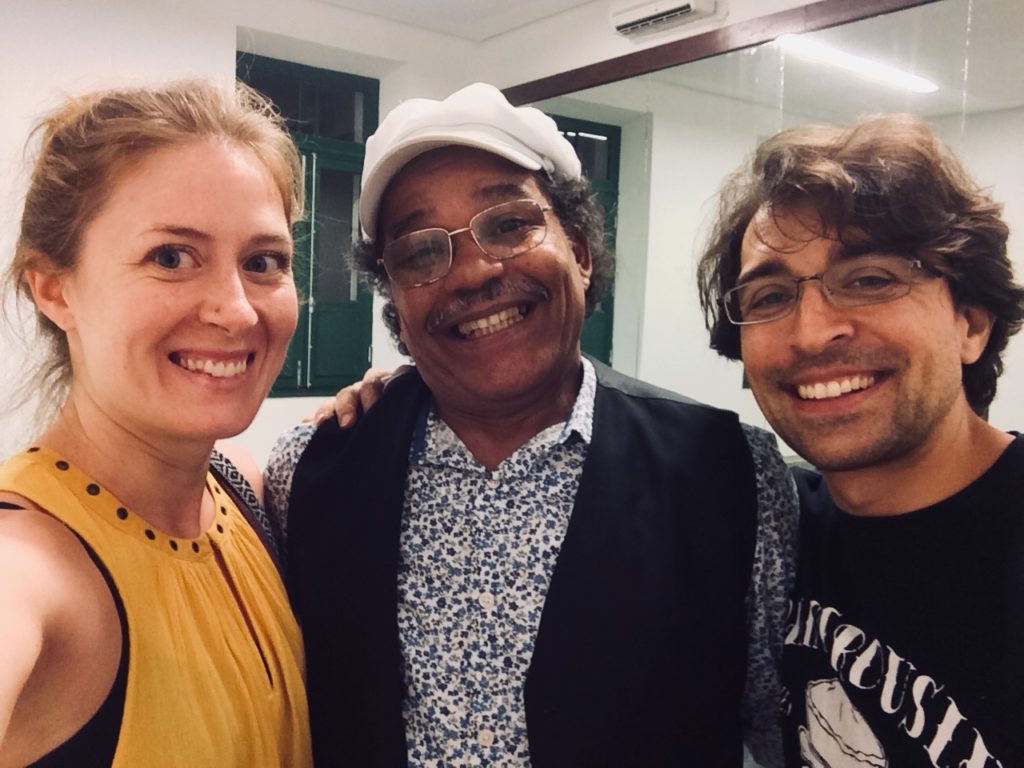
Ferreirinha do Frevo spoke passionately about historical and current cultural context of frevo in Recife and explained some of the “darker” history of frevo, indicating that frevo is not all smiles and colorful umbrellas.
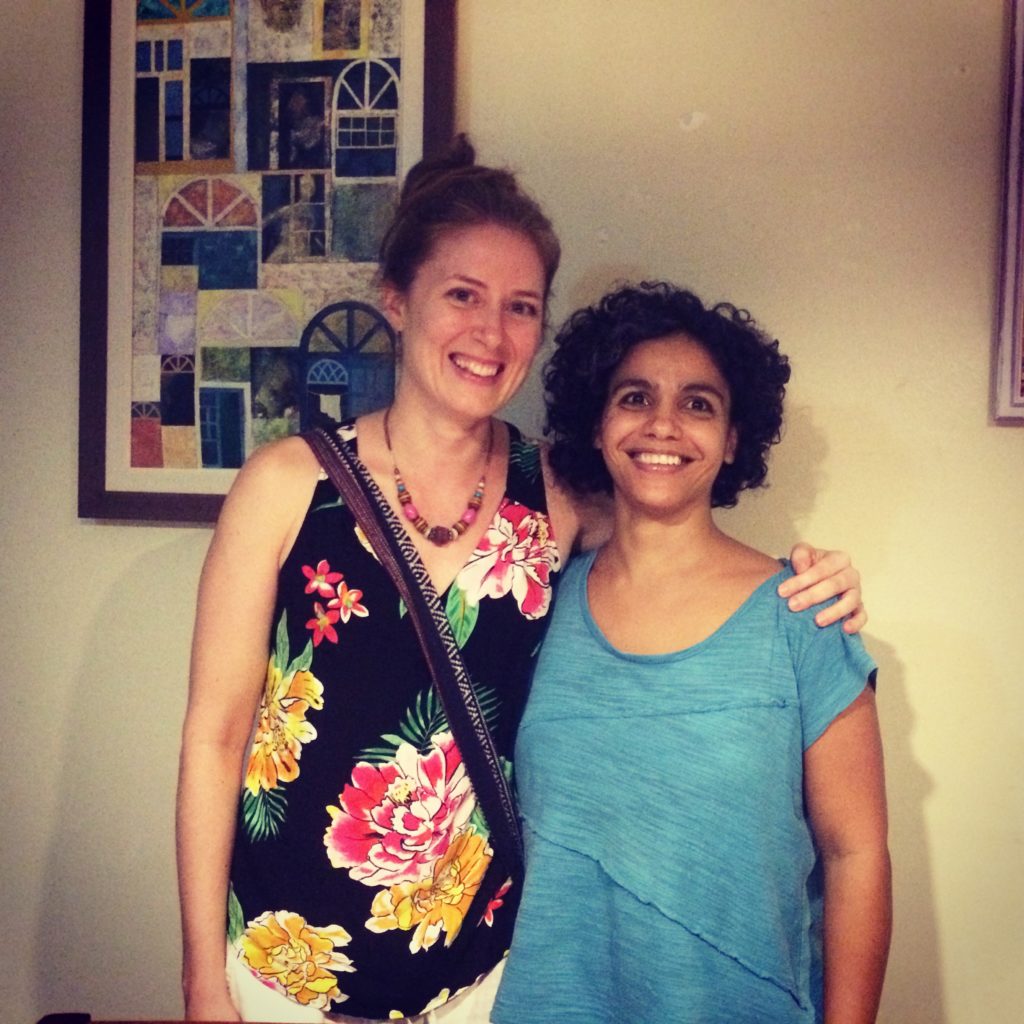
Valéria Vicente comes to frevo as a foliã (someone who enjoys carnival and dances frevo in the streets) and is also a dance artist and scholar who has created works and written books about frevo. Her scholarship and artistic work has been very informative for me, as she touches on themes of resistance as well as the somatic experience of frevo.
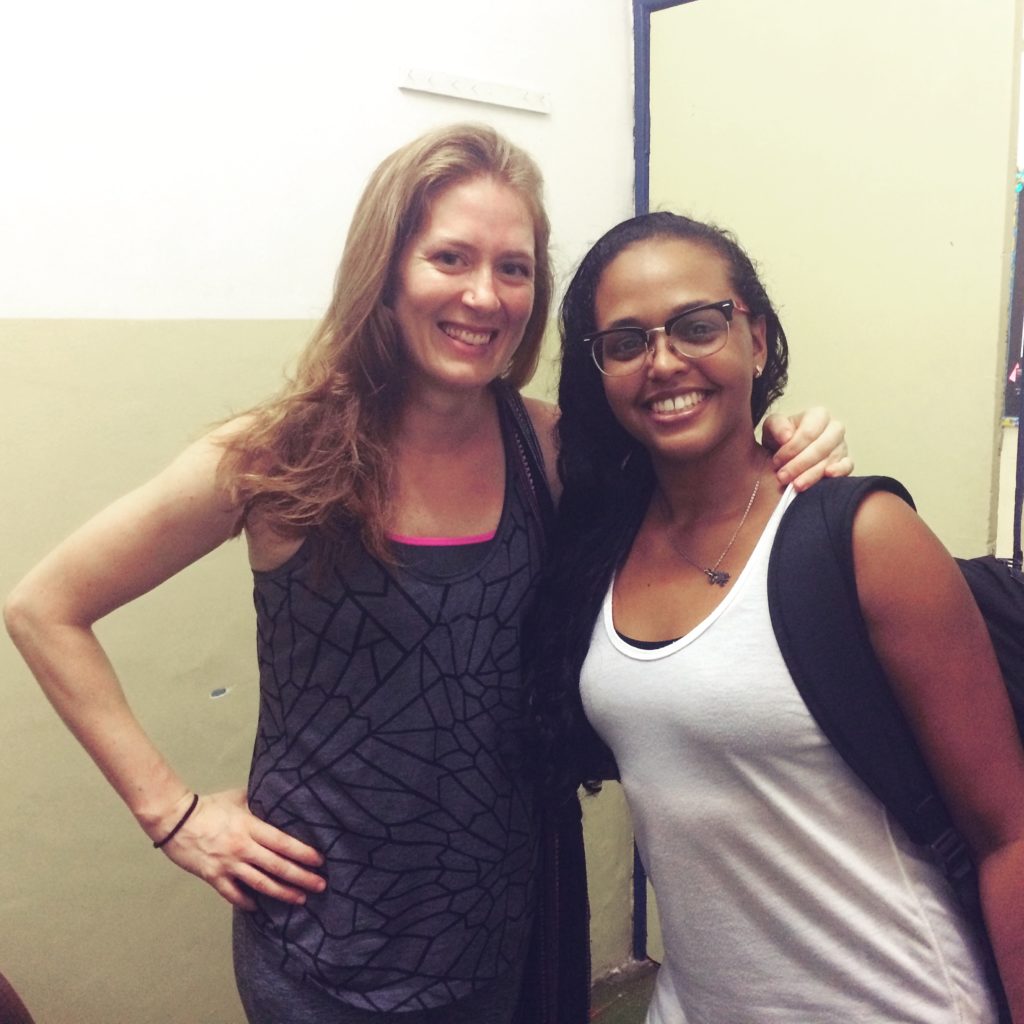
Bruna Renata is the director of the Companhia do Frevo de Recife and practices many different dance styles besides frevo, including ballet, jazz, dança de salão (ballroom/partner dancing), and more. She offered a unique perspective on modern influences on frevo and innovation within this genre of dance.
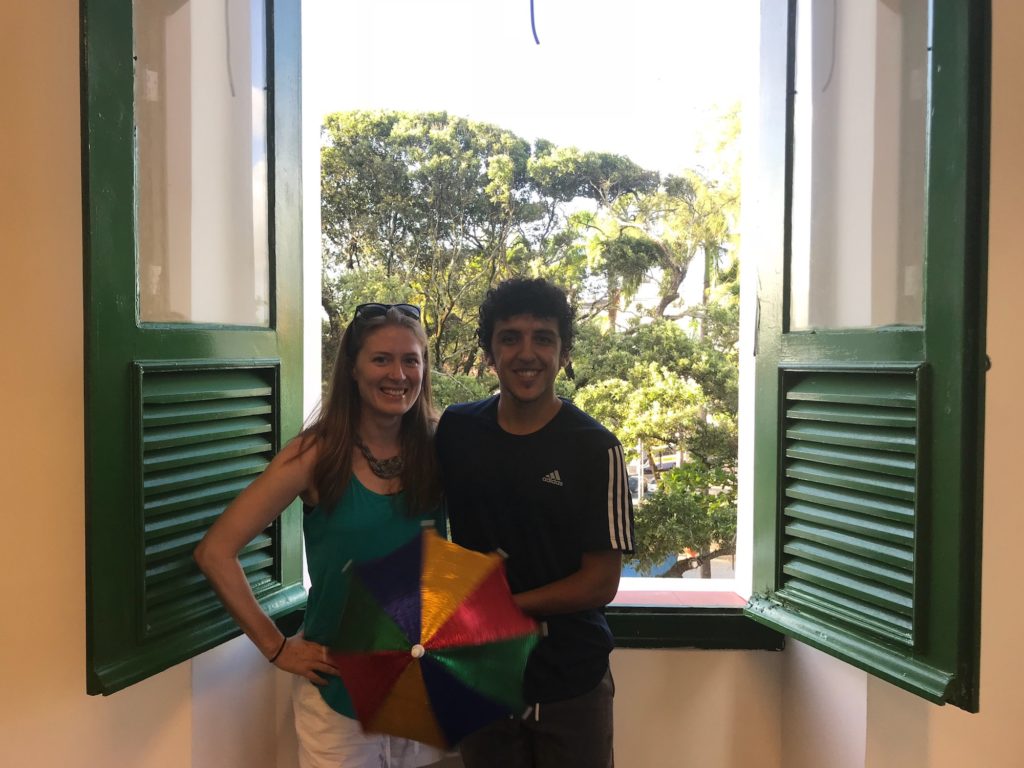
Júnior Viégas directs his own Stúdio Viégas and is my frevo teacher at Escola Municipal de Frevo. He is an artist who works primarily within the frevo genre—he is extremely active in the frevo world and he talked to me about his experiences directing his own company, teaching at Escola Municipal, and offering “vivências” for visitors at the Paço do Frevo (a museum dedicated to frevo).
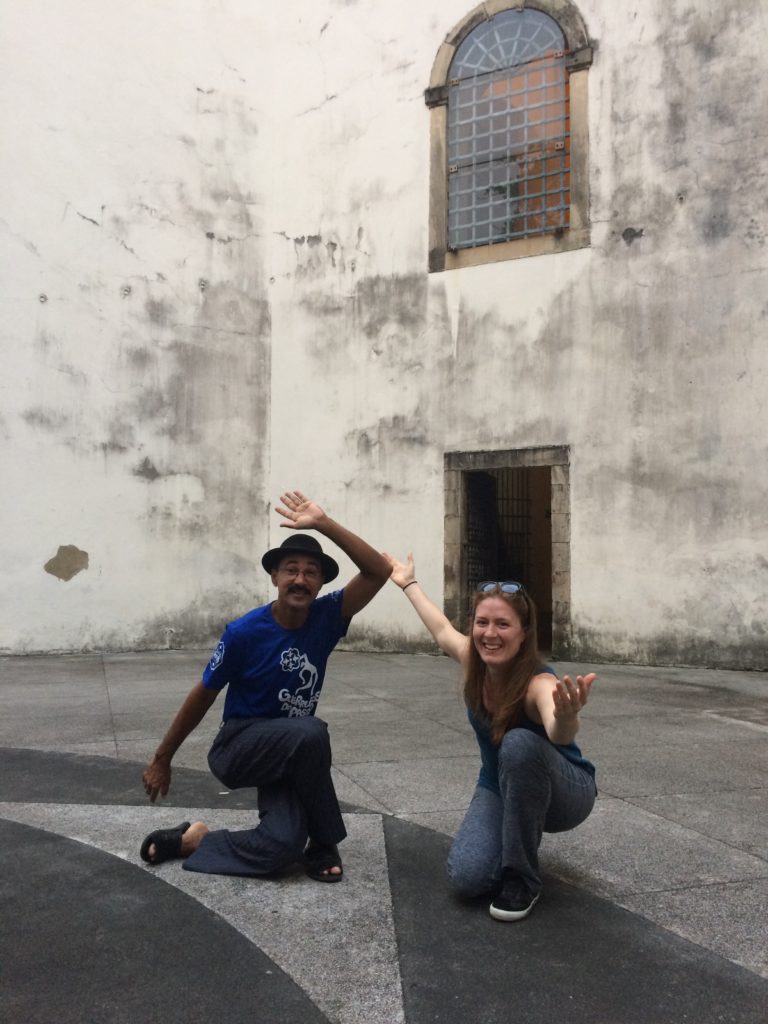
Laércio Olímpio comes to frevo as a folião and is also our professor with Guerreiros do Passo. He demonstrates inspiring creativity and ability in his dancing that brings a certain carnival “spirit” to the space. He spoke to me about the differences between the frevo of previous generations and frevo today, offering great perspective on what has changed and what has stayed the same.
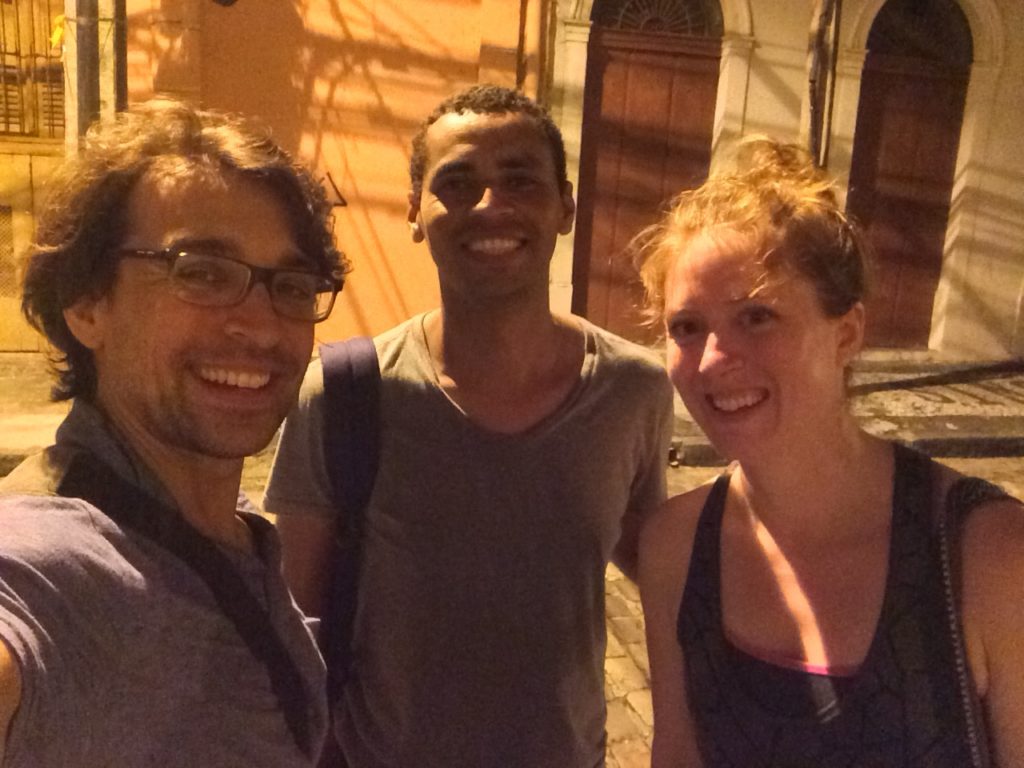
Fabinho Soares spoke to me about cavalo marinho and maracatu rural from Zona Da Mata. Fabinho is one of the best dance teachers I’ve ever had because he combines historical/cultural/political context with the nuances of the movement and he teaches us how to respect these traditions. He offers an important perspective for better understanding the multiplicity of cultural expressions in Pernambuco.
And I still have more interviews to go! The amount of information I’m learning from each of these people is overwhelming, and each one shapes my understanding of frevo in unexpected ways. I’m grateful that they have all been so willing to speak to me and share their knowledge.
As a result of these conversations, I have also been pointed in the direction of many important books and articles written about frevo and popular dance in Recife/Pernambuco. In case you think my days are filled with dancing (those are my evenings, haha), I have been trying to cram as much reading in as possible. This is no easy task for me in Portuguese, but I’m managing.
(By the way, Evernote is my best friend, and I am not being paid to say this. I don’t know how I’d organize all this information: articles, photos, notes, video links, journal entries, etc. All tagged and compiled into digital notebooks.)
Meanwhile, I am continuing to take dance classes nearly every day and my body is in pain, but happy (good pain). We are also going to capoeira classes at Mestre Perna Pesada’s academy in Encruzilhada, which has been great fun. It has been awhile since I’ve trained capoeira and it feels good to get back in the jogo (game). My introduction to Brazilian culture was through capoeira, so it’s been interesting to go back to that world after having been in Brazil for a few months.
I am planning a couple more trips for my last month. At least one of these will be purely recreational—I still have not spent time at the beach, besides a short walk in João Pessoa, and I am also hoping to swim under a Brazilian cachoeira (waterfall). Festa Junina is also coming up throughout the month of June so we are planning to travel to some other cities in Pernambuco that are known for great music and dancing. I’m ready to dance some forró! 🙂
